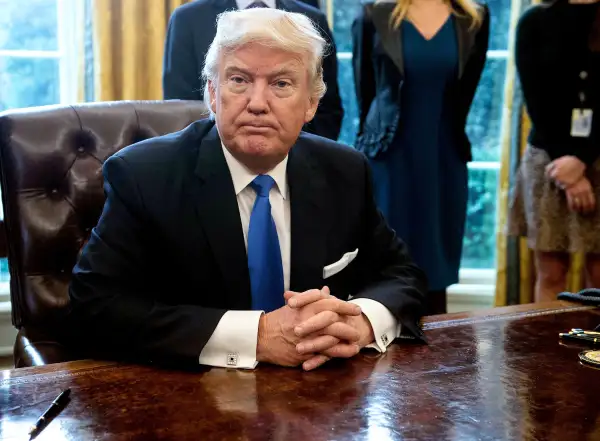Two Ways Donald Trump Is Putting the Screws to Millennials

Of the estimated 24 million millennials who voted in last November's election, just 37% supported Donald Trump. Now they're likely to experience some negative financial effects of President Trump's policies.
Here are some of the ways the Trump administration could hurt young people's finances.
Housing
One of Trump's first moves as president was to suspend a rate cut in annual mortgage insurance premiums issued by the Federal Housing Administration.The Obama administration announced the cut in its final days in office, and it was set to take effect on home sales closed January 27 or thereafter. It would have saved new homeowners about $500 in 2017, according to the FHA.
Th premium rate cut of .25% was seen as a way to incentivize more first-time—ahem, millennial—home buyers, according to CNNMoney. FHA-backed loans are popular among young people because borrowers can qualify with a down payment as low as 3.5% and a less than exemplary credit score (starting at 580). Last week, the average rate on a 30-year mortgage was 4.18%, according to Bankrate.
“This action is completely out of alignment with President Trump’s words about having the government work for the people,” John Taylor, president of the National Community Reinvestment Coalition, told Bloomberg. The Trump administration said it needs more time to review actions taken under the previous administration, particularly those that came about so late.
“Still being young in their careers and not having had as much time to accumulate savings, they are less capable of putting a substantial amount of money down, which subjects them to things like mortgage insurance,” Tim Beyers, a mortgage analyst at American Financing said in an email. “What could have been an opportunity to save them a few hundred dollars a year is no longer an option."
Health Care
Millennials comprise about 30% of enrollees in the healthcare exchanges set up Affordable Care Act, which Trump and the GOP-controlled House and Senate have vowed to repeal. Millions more have taken advantage of the popular provision that allows dependents to stay on their parents' insurance plan until the age of 26. In fact, according to a June 2016 survey from the Transamerica Center for Health Studies, the uninsured rate among millennials fell from 23% in 2013 to 11% at the time of the survey. (Still, the ACA's millennial problem is well-documented.)
For many, ACA health coverage means having freedom and flexibility to freelance or work for themselves. But even if you don't get insurance via the exchanges, there are plenty of benefits that didn't exist before the law's passage. Birth control, used by 99% of sexually active women, is currently covered with no co-pay, leading to significant declines in prescription drug costs.
"A lot of times, the only medical care young adults get is preventative: an annual check-up, contraception, or a gynecological exam, for example," says Cynthia Cox, associate director of the Kaiser Family Foundation. "Under the ACA that's all covered without a copayment, but under most of the [Republican] replacement plans that provision would be repealed."
Out-of-pocket payments are capped (in 2017, the individual cap is $7,150 for covered benefits) and mental health care coverage has been greatly expanded, as well. Millions of Medicaid recipients, many of whom are the disabled young, could also lose their insurance under an Obamacare repeal. (Cox does note, however, that "for higher-income young adults or those buying directly from an insurance company and not getting a subsidy, their costs might go down.")
Given that no replacement plan has been proposed, it's unclear what will happen to the millions of young people who receive their health insurance via the Obamacare exchanges.
